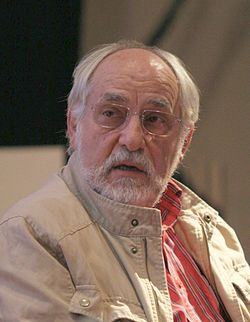Arturo Ripstein | |
|---|---|
 Arturo Ripstein | |
| Born | Arturo Ripstein y Rosen December 13, 1943 Mexico City, Mexico |
| Occupation(s) | Film director, producer and screenwriter |
| Years active | 1965 - present |
| Spouse | Paz Alicia Garciadiego |
| Children | 2 |
| Relatives | Alfredo Ripstein (father) |
| Awards | National Prize for Arts 1997 |
Arturo Ripstein y Rosen (born December 13, 1943) is a Mexican film director and screenwriter. Considered the "Godfather of independent Mexican cinema", Ripstein's work is generally characterized by "somber, slow-paced, macabre melodramas tackling existential loneliness", often with a grotesque-like edge. [1]
Contents
He is a nine-time Ariel Award winner, including five for Best Picture and two for Best Director. Three of his films have been nominated for the Palme d'Or at the Cannes Film Festival. In 1997, he received the prestigious National Prize for Arts and Sciences for his contributions to Mexican cinema. [2] He was the second filmmaker (after Luis Buñuel) to receive that honour.